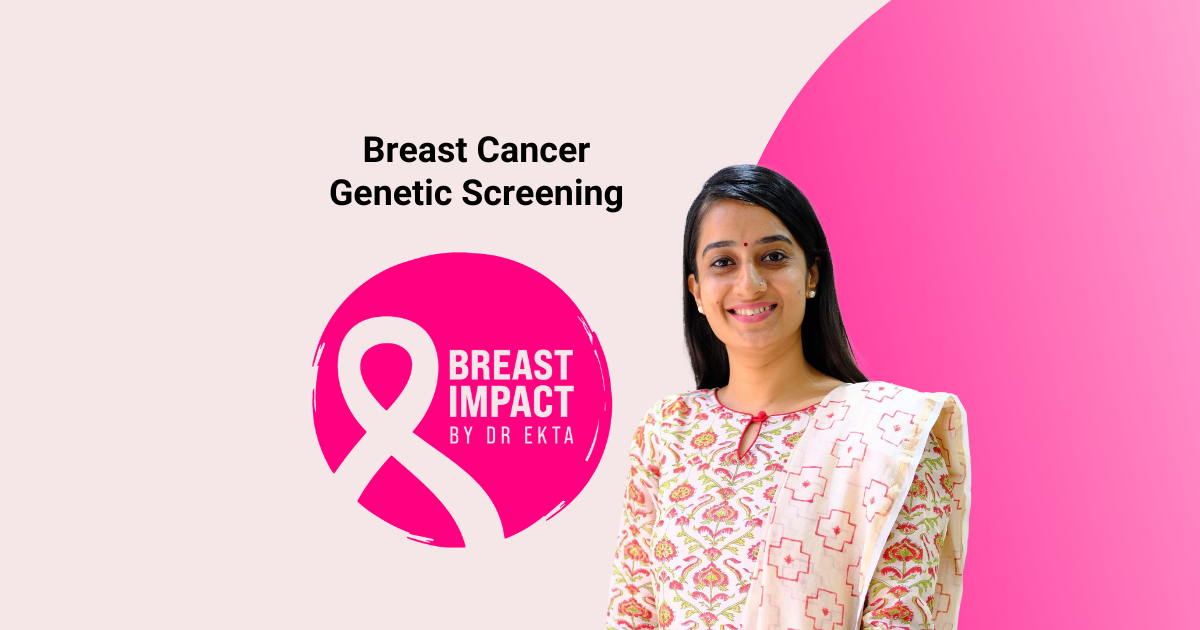Breast cancer is one of the most common cancers affecting women worldwide. While many cases are sporadic, a portion of breast cancers are hereditary. Breast Cancer Genetic Screening helps identify individuals who are at a higher risk due to inherited genetic mutations. Understanding the importance and process of genetic screening can empower patients and their families to make informed decisions about prevention, early detection, and treatment.
What is Breast Cancer Genetic Screening?
Genetic screening for breast cancer involves testing a person’s DNA to detect mutations in specific genes associated with increased cancer risk.
Key genes commonly tested include:
- BRCA1 and BRCA2: Most well-known genes linked to hereditary breast and ovarian cancer
- PALB2, CHEK2, ATM, and TP53: Also associated with increased breast cancer risk
- PTEN, CDH1, and STK11: Linked with rarer hereditary cancer syndromes
Who should consider genetic screening?
- Individuals with a strong family history of breast or ovarian cancer
- Those diagnosed with breast cancer at an early age
- Men with breast cancer
- People of Ashkenazi Jewish descent (higher likelihood of BRCA mutations)
Why is Breast Cancer Genetic Screening Important?
Genetic screening can offer crucial insights that influence healthcare decisions for both patients and their family members.
Benefits of genetic screening:
- Early Detection: Enables more frequent screenings (like mammograms or MRIs) for high-risk individuals
- Preventive Measures: Some may choose preventive mastectomy or medication to reduce risk
- Targeted Treatments: Certain treatments are more effective for patients with specific genetic mutations
- Family Planning: Informs relatives who may also be at risk
For more about screening tests, check out our early cancer detection guide.
The Genetic Screening Process
The process of Breast Cancer Genetic Screening is straightforward and non-invasive, typically involving a blood or saliva sample.
Steps in the process:
- 1. Genetic Counseling: A certified genetic counselor assesses personal and family history to determine whether testing is appropriate.
- 2. Sample Collection: DNA is collected via blood draw or saliva swab.
- 3. Laboratory Analysis: Specialized labs analyze your genes for known mutations.
- 4. Result Interpretation: Results are reviewed with the counselor to understand their meaning and implications.
- 5. Follow-Up Plan: Based on findings, a personalized prevention or treatment plan is created.
Understanding Test Results
The results of breast cancer genetic screening fall into a few categories:
1. Positive Result:
- A mutation in a known cancer-associated gene is found
- Increases your risk of breast (and possibly other) cancers
- Requires enhanced surveillance or preventive action
2. Negative Result:
- No mutations detected
- Doesn’t eliminate cancer risk entirely but suggests it’s not due to inherited mutations
3. Variant of Uncertain Significance (VUS):
- A genetic change is found, but its impact is unclear
- May require future research or re-evaluation
Important: Results should always be discussed with a genetic counselor or oncologist to determine the best course of action.
Risks and Limitations
While genetic testing offers significant benefits, it also has limitations.
Potential risks and limitations include:
- Emotional Impact: Learning about increased risk can cause anxiety or stress
- Uncertain Results: Not all genetic changes are clearly understood
- Limited Coverage: Some tests may not be covered by insurance without strong medical justification
- Family Implications: Results may affect decisions and emotions within families
Preventive and Monitoring Options
If your screening results indicate a higher risk, your doctor may recommend:
Increased Surveillance:
- Annual mammograms starting at an earlier age
- Breast MRIs for more detailed imaging
- Clinical breast exams every 6-12 months
Risk-Reducing Strategies:
- Preventive mastectomy or oophorectomy
- Hormonal medications like tamoxifen
- Lifestyle changes: healthy diet, exercise, and avoiding tobacco/alcohol
Explore more about how to reduce your risk of cancer.
Genetic Screening for Family Members
If you test positive for a hereditary mutation, your blood relatives (siblings, children, and parents) may also be at risk.
Next steps for family members include:
- Genetic counseling and testing
- Building a proactive screening schedule
- Considering lifestyle changes or preventive treatment
Addressing Common Patient Concerns
Will I get breast cancer if I have a mutation?
- Not necessarily. It means you are at a higher risk but not guaranteed to develop cancer.
Is the test safe?
- Yes, it’s a simple saliva or blood test with no physical risks.
Can my insurance company use results against me?
- In many countries, laws prevent discrimination based on genetic information (e.g., GINA in the U.S.).
How much does the test cost?
- Costs vary but may be covered with medical indication. Some programs offer affordable testing.
Do men need breast cancer genetic screening?
- Yes. Men with a family history or personal diagnosis may benefit from BRCA testing.
Trusted Resources and Support
For further reading and expert guidance:
- National Cancer Institute: BRCA Mutations
- Centers for Disease Control and Prevention: Genomics and Breast Cancer
- American Cancer Society: Genetic Testing for Cancer
Final Thoughts
Breast Cancer Genetic Screening is a valuable tool that can help uncover hidden risks and guide proactive health choices. Whether you have a family history or simply want peace of mind, genetic screening offers insight that can shape your future.
To explore your eligibility and understand your risk, schedule a consultation with our cancer team. Early knowledge leads to early action and that can save lives.

